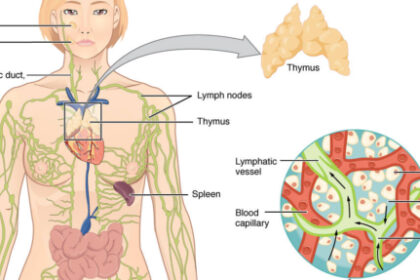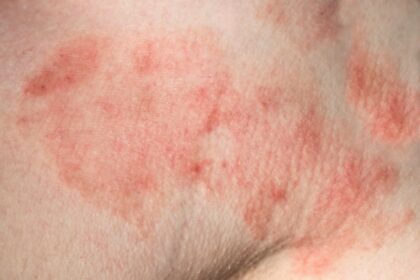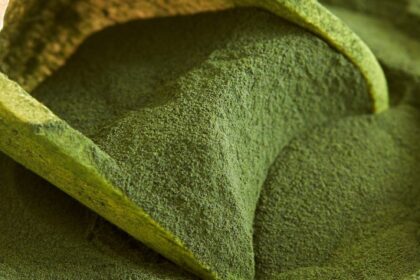Hypertension and heart failure are two serious cardiovascular conditions that affect millions of people worldwide. High blood pressure and impaired cardiac function can lead to severe health complications and even be life-threatening. Maintaining cardiac ionic homeostasis, specifically with regard to calcium, potassium, and sodium levels, is crucial for a healthy heart. In recent studies, the role of proanthocyanidins in preserving cardiac ionic balance and preventing hypertension and heart failure has garnered significant attention. This article aims to delve into the mechanisms through which proanthocyanidins help maintain cardiac ionic homeostasis and prevent the buildup of calcium in the arteries.
According to the CDC, Heart disease is the leading cause of death for men, women, and people of most racial and ethnic groups in the United States. One person dies every 33 seconds in the United States from cardiovascular disease.
Proanthocyanidins and Cardiac Homeostasis:
Proanthocyanidins, a class of flavonoids abundantly found in various fruits, vegetables, and plant-based products, have been extensively studied for their health benefits. These compounds possess potent antioxidant and anti-inflammatory properties, which contribute to their protective effects on cardiovascular health. Recent research has shown that proanthocyanidins play a crucial role in maintaining cardiac ionic homeostasis, primarily by regulating calcium, potassium, and sodium levels within the heart.
-
Calcium Regulation:
Calcium plays a vital role in cardiac muscle contraction and relaxation. However, excessive calcium influx or impaired calcium handling can disrupt normal cardiac function and contribute to the development of hypertension and heart failure. Too much calcium buildup causes a constriction of arterial bloodflow. This simply means that calcium hardens on the walls of the arteries and leads to a more narrow path for blood to travel to and from the heart. This alone is a big reason why people die from heart attacks, or heart failure. Proanthocyanidins have been found to inhibit calcium overload in cardiac cells by modulating intracellular calcium levels. This prevents excessive calcium release from intracellular stores and reduces the risk of abnormal calcium accumulation within the heart.
Moreover, proanthocyanidins promote vasodilation, thereby improving blood flow and reducing the strain on the heart. By preventing calcium overload and enhancing vasodilation, proanthocyanidins help maintain normal cardiac function and mitigate the risk of hypertension and heart failure.
-
Potassium Balance:
Potassium is essential for maintaining the electrical excitability of cardiac cells. Disturbances in potassium levels can disrupt normal cardiac rhythm and lead to arrhythmias, a common complication in hypertension and heart failure. Proanthocyanidins have been shown to help maintain optimal potassium balance in the heart by modulating potassium channels. By regulating potassium flux, proanthocyanidins promote stable cardiac electrical activity, reducing the risk of arrhythmias and maintaining overall heart health.
-
Sodium Regulation:
Sodium plays a critical role in maintaining fluid balance and blood pressure. Excessive sodium intake can contribute to hypertension, increasing the risk of heart failure. Proanthocyanidins have demonstrated the ability to regulate sodium transporters in the kidney, promoting sodium excretion and preventing sodium retention. This aids in maintaining normal blood pressure and reducing the strain on the heart, ultimately protecting against hypertension and heart failure.
Preventing Arterial Calcium Buildup:
In addition to maintaining cardiac ionic homeostasis, proanthocyanidins have been shown to inhibit the accumulation of calcium in arterial walls, a process known as arterial calcification. Arterial calcification is a major risk factor for cardiovascular diseases, as it can lead to the narrowing of blood vessels and reduced blood flow.
Proanthocyanidins exert their protective effects against arterial calcification through several mechanisms. Firstly, they possess potent antioxidant properties, which reduce oxidative stress and inflammation within the arterial walls, preventing the initiation and progression of calcification. Secondly, proanthocyanidins interact with calcium ions, inhibiting their deposition and preventing the formation of calcified plaques.

What Minerals Does The Heart Need To Function?
Get Paleovalley essential electrolytes by clicking here. Get 15% off at this link.
Get Radiate 21 by clicking here. Use the discount code: radiate10 for 10% off!
Maintaining cardiac ionic homeostasis is crucial for a healthy heart and prevention of hypertension and heart failure. Proanthocyanidins, through their ability to regulate calcium, potassium, and sodium levels, play a vital role in preserving this balance and promoting cardiovascular health.
The research surrounding proanthocyanidins has highlighted their potential as a natural intervention in managing aldosterone-induced hypertension and heart failure. By modulating intracellular calcium levels, proanthocyanidins prevent calcium overload within cardiac cells, preserving their normal function and reducing the risk of hypertension and heart failure. Additionally, their influence on potassium channels helps maintain stable cardiac electrical activity, minimizing the occurrence of arrhythmias—a common complication in these conditions.
Moreover, proanthocyanidins aid in sodium regulation by promoting sodium excretion and preventing sodium retention. This, in turn, helps maintain normal blood pressure levels and reduces the strain on the heart. By addressing the underlying causes of hypertension, proanthocyanidins demonstrate their potential as a preventive measure against heart failure.
Beyond their role in maintaining cardiac ionic homeostasis, proanthocyanidins have shown promise in preventing arterial calcification. The ability to inhibit calcium deposition and plaque formation in arterial walls is of significant importance in reducing the risk of cardiovascular diseases. Through their potent antioxidant properties and interaction with calcium ions, proanthocyanidins counteract oxidative stress, inflammation, and the initiation of calcification, preserving healthy blood flow and minimizing the narrowing of blood vessels.
Incorporating proanthocyanidins into one’s diet can be achieved by consuming foods rich in these compounds, such as grapes, berries, cocoa, and green tea. However, it is essential to note that further research is needed to determine optimal dosage and potential interactions with medications, as well as to explore the full extent of their cardioprotective effects.
In conclusion, proanthocyanidins have emerged as promising natural compounds with the ability to maintain cardiac ionic homeostasis, prevent hypertension, and mitigate the risk of heart failure. By regulating calcium, potassium, and sodium levels within the heart, these compounds contribute to a healthy cardiovascular system. Additionally, their capacity to inhibit arterial calcification showcases their potential in reducing the risk of cardiovascular diseases. Incorporating proanthocyanidin-rich foods into a balanced diet may offer a natural approach to promote heart health and prevent the complications associated with hypertension and heart failure. As always, consulting with healthcare professionals is recommended before making any significant dietary changes or introducing new supplements.
Recommended Reading:





